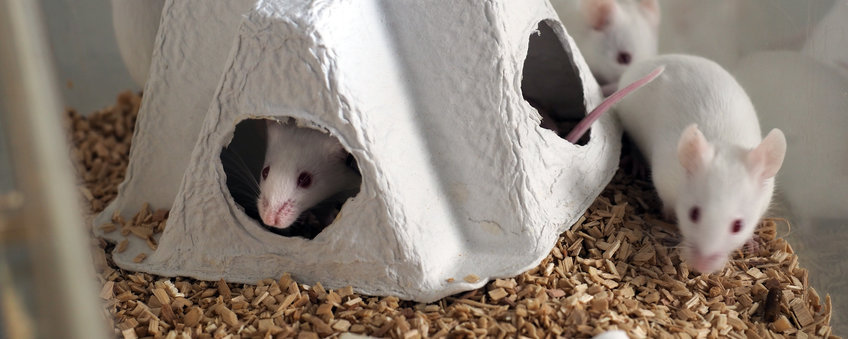
Animals in research at the Max Planck Institute for Infection Biology
At the Max Planck Institute for Infection Biology, animal experiments are carried out to answer questions about infectious diseases and the immune system. When planning experiments, our researchers apply the "3R principle". The "3R principle" describes ethical principles for research with animals: Replace, Reduce, Refine.
For each scientific question, we carefully consider which model system is best suited for it - thus many of our experiments are carried out in cell culture. We often use human material such as human blood samples in close cooperation with colleagues from the clinic. For many basic questions we use the fruit fly Drosophila melanogaster, various mosquito species of the genus Anopheles and the zebrafish Danio rerio. Experiments with mice and rats are only carried out if there are no other alternatives. Efforts are always made to reduce the suffering of animals in animal experiments as much as possible. When conducting animal experiments, we use as few animals as possible. This minimum number is determined statistically beforehand to ensure that the results of the experiment are meaningful.
As an institute of the Max Planck Society, we are committed to the policy paper "White Paper - Animal Experiments in the Max Planck Society" adopted by the MPG in 2017. The Max Planck Society has added a fourth "R" to the 3R principles, which stands for "Responsibility". The scientists of the MPG thus acknowledge their responsibility with regard to animal experiments and commit themselves to using their broad scientific expertise to promote animal welfare. This responsibility also refers to the active promotion of public discourse on questions of animal ethics.
Further Information
Animal Experiments in Research: Brochure issued by the Senate Commission on Animal Protection and Experimentation of the German Research Foundation DFG
Pro-Test Germany: This is a webside for scientists, who aim to provide reliable information about using animals in both basic and applied research.
Understanding Animal Research: This website, of the British group UAR, provides a wealth of information about animal research and the resulting advances in science and medicine.
Basel Declaration: A call for more trust, transparency and communication on animal research